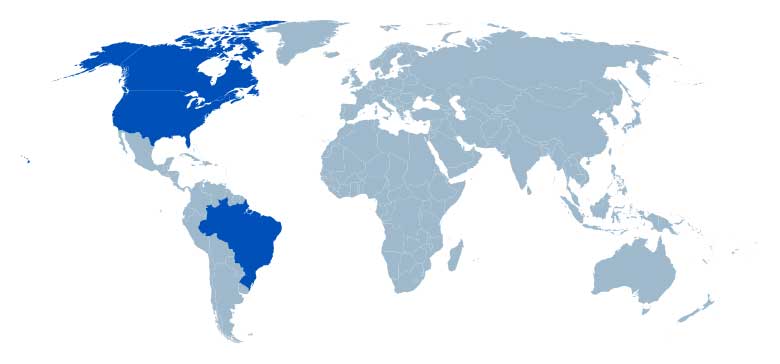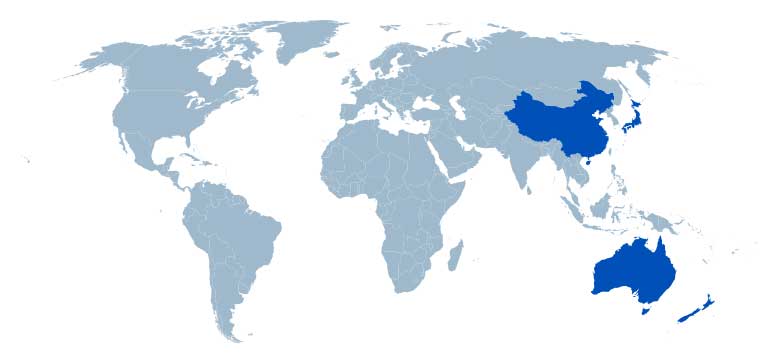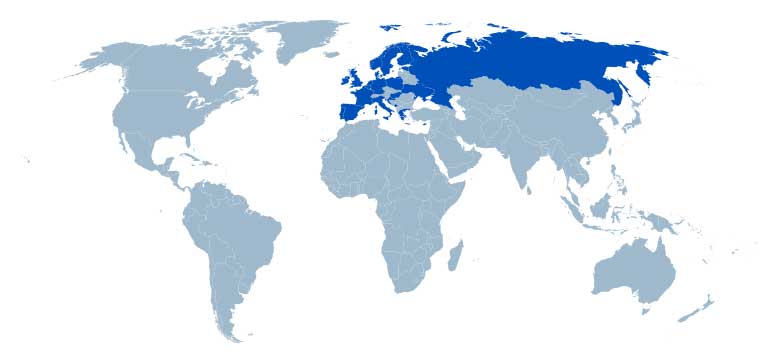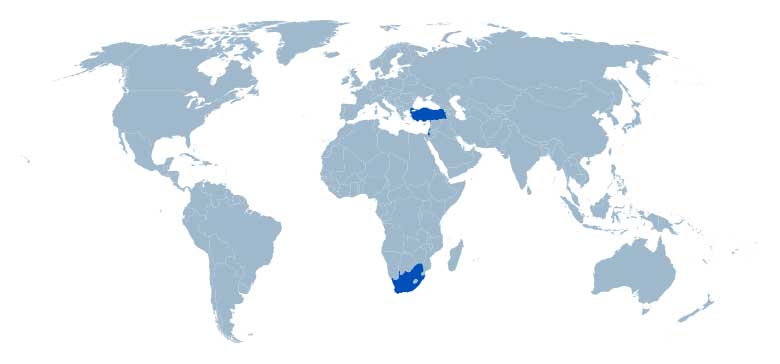International Paint Limited (UK) Modern Slavery Statement 2016
This statement has been published in accordance with the UK Modern Slavery Act 2015. It sets out the steps taken by Akzo Nobel NV and its subsidiaries up to December 31, 2016, to prevent modern slavery in its business and supply chain.
Introduction
Slavery, servitude, forced labor and human trafficking (modern slavery) are infringements of human rights which have a profound, negative impact on people’s lives. AkzoNobel has a zero tolerance approach to modern slavery of any kind.
At AkzoNobel, we recognize the human rights of all people as outlined in the Universal Declaration on Human Rights and our responsibility to respect human rights as set out in the UN Guiding Principles on Business and Human Rights. We strive to prevent the infringement of human rights and to remediate the possible impact on human rights resulting from our activities or products. We impose the same standards and expectations on the business partners that we engage with. In turn, we expect our business partners to apply equivalent principles and seek to actively support them in their implementation where needed.
We encourage our colleagues, business partners and people affected by our activities or products to raise complaints and grievances about any potential human rights concerns. We address these complaints and grievances fairly, in confidence and in accordance with laws.
Our business and supply chains
AkzoNobel is a leading global paints and coatings company and a major producer of specialty chemicals. We supply essential ingredients, essential protection and essential color to industries and consumers worldwide. In 2016, the turnover for the group was 14,197 billion. Headquartered in Amsterdam, the Netherlands, we have approximately 45,000 people in around 80 countries, while our portfolio includes well-known brands such as Dulux, Sikkens, International, Interpon and Eka. We are dedicated to energizing cities and communities while creating a protected, colorful world where life is improved by what we do.
AkzoNobel is organized in three Business Areas: Decorative Paints, Performance Coatings and Specialty Chemicals. The Business Areas are organized into business units and, in many cases, sub-business units. AkzoNobel purchases and sells a wide array of diverse products catering to many customers in many different markets all over the world. Our supply chains are long and sometimes complex. As a result, the company has tens of thousands of suppliers, large and small. While sourcing is partially centralized and key products and large volume products are sourced company-wide, managing our supply chain will continue to be a significant challenge.
Policies and contractual controls
AkzoNobel’s policies include principles on how its employees and business partners should respect human rights. Our Code of Conduct states that we will not tolerate abuses of human rights, whether at the company or in the supply chain, and that we will take any infringements of these rights very seriously and act accordingly. Policies are developed by experts at the company and signed off at Executive Committee level. Each year, management in the organization needs to certify compliance with policies.
We operate a whistleblowing mechanism known as SpeakUp! with supporting processes and staff. This mechanism is available for both employees and third parties, including suppliers and their employees. People are encouraged to report any concerns of wrongdoing, including human rights violations such as Modern Slavery. All reports are investigated and appropriate action is taken.
All suppliers are required to sign and comply with our Business Partner Code of Conduct, which includes an express commitment to avoid infringement of human rights and to remediate the impact, if any, on human rights resulting from activities performed for AkzoNobel and from products made for AkzoNobel.
In 2016, we developed a new Business Partner Compliance Framework (“the Framework”) throughout the organization. The Framework will provide for a company-wide, risk-based screening of business partners, both on the supply side and sales side. The scope for screening includes adverse media which covers human rights and modern slavery related issues.
Due diligence and audits of suppliers and supply chain
AkzoNobel is fully aware that multiple risks come with a complex supply chain, including the risk that slavery and human trafficking may exist in these supply chains. The company has taken various initiatives to address this risk and will continue to assess their effectiveness to ensure these risks continue to be mitigated.
Supplier Support Visits (SSV)
In 2007, the SSV program was introduced. It was designed to develop long-term local suppliers in emerging markets by raising their capability and performance. The SSV program is an important supplier management tool. The program is risk-based and focuses on critical suppliers. Supportive visits are carried out by teams from Procurement, and Health, Safety and Environment (HSE). Formal follow-up visits by these teams are conducted to verify implementation of agreed plans and overall progress. In order to ensure continued development of sustainable supply chains in emerging markets, selected approved SSV suppliers continue their sustainability journey by entering AkzoNobel’s third party assessment and audit programs. Awareness of, and compliance with, corporate social responsibility, including modern slavery, is monitored with continued support from local, cross-functional AkzoNobel teams.
Together for Sustainability (TfS)
TfS is an industry initiative made up of 19 leading global chemical companies and continues to expand. It aims to improve sustainability practices within the global supply chains of the chemical industry, building on established global principles such as the United Nations Global Compact and the Responsible Care Global Charter. With TfS, we aim to implement effective, leading edge practices across the industry. We are implementing standardized global sustainability assessments and on-site audits to monitor and improve sustainability practices in our supply chains.
Global implementation of the TfS processes provides a number of benefits, including confirmation of compliance with our Business Partner Code of Conduct, including human rights, across a selected global supplier portfolio, as well as strengthening our risk identification and mitigation processes.
The results of our TfS assessments, which use the EcoVadis platform, allow us to identify common areas for improvement and focus improvement activities relating to the suppliers that are assessed through the platform. Improvement areas include the introduction of a formal reporting system on our suppliers’ sustainable procurement performance and business ethics issues, including human rights.
More detail on these processes and the results can be found in the Sustainability statements section of our annual report.
Assessment of modern slavery risk within our supply chain
AkzoNobel has set up a cross-functional Human Rights Committee, reporting to the Executive Committee through the General Counsel and Director Human Resources, to oversee further improvements in our policies, processes and governance conducive to addressing human rights and the risk of modern slavery in our supply chain. The committee is working closely together with external parties on the process of implementing further human rights policies and processes, including the mapping of human rights risks and mitigation thereof.
The Board of Management and Executive Committee have identified four initial focus areas. The Human Rights Committee will concentrate its effort on working conditions, health and safety, discrimination and harassment and under-age labor in the value chain, which therefore brings modern slavery further into focus.
Modern slavery prevention training
Our Executive Committee and Supervisory Board have been trained on human rights as has the managing board of our Decorative Paints business in the UK.
This statement was approved by the Board of Management and Executive Committee of Akzo Nobel N.V. and adopted by the Board of International Paint Limited on 12th April 2017.
Sarah Garrett
Director
12th April 2017
Paint your boat like a pro
Find the best products to keep your boat in great condition
Get all the support you need to paint with confidence
Benefit from our continuous innovation and scientific expertise






